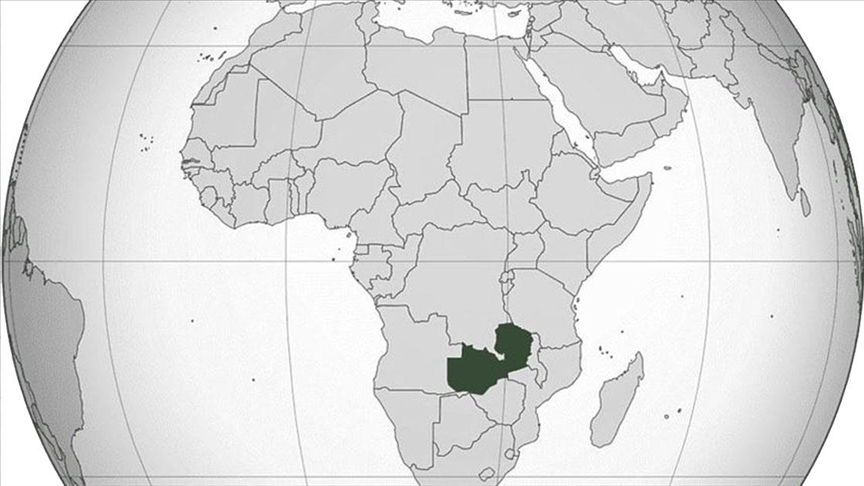Tanzania, Zambia cross-border railway unlocks trade ties
Railway upgrade to increase freight capacity to 5M tons annually

DAR ES SALAAM, Tanzania
Tanzanian President Samia Suluhu Hassan and her Zambian counterpart, Haikande Hichilema, have agreed to upgrade the cross-border railway connecting the two countries to speed up economic progress as part of a broader push to strengthen ties.
The decision to revive the Tanzania and Zambia Railway Authority (TAZARA) was reached last week in the port city of Dar es Salaam where the two leaders held talks.
Hassan said the dilapidated, single-track TAZARA line does not deliver what is expected and an upgrade is badly needed to tap new business opportunities along the route.
“In today’s world, railway is standard gauge, so through a public-private partnership (PPP) we have agreed to mobilize resources to improve the railway to that level,” she said.
The 1,860-kilometer (1,155-mile) railway, stretching from Dar es Salaam to the heart of Zambia’s copper belt, was built by China as a turnkey project between 1970 and 1975.
With an installed capacity of 5 million tons of freight per year, TAZARA has been handling traffic for the Southern African Development Community (SADC) as well as the Common Market for Eastern and Southern Africa (COMESA), providing a vital regional link among the southern, eastern and central African regions with the rest of the world through the port of Dar es Salaam.
Blessing for land-locked Zambia
Hichilema expressed gratitude to the founding leaders Julius Nyerere and Kenneth Kaunda, from Tanzania and Zambia, respectively, for their clear vision.
“As a land-locked country, Zambia will benefit even more from the improved transportation of goods and services through this railway,” Hichilema told reporters.
TAZARA’s Managing Director and CEO Bruno Ching’andu said Tanzania has started to mobilize funding to implement the project.
“We strongly support our leaders who have shown political will to upgrade this railway,” he said.
Ching’andu said the new drive is an impetus to turn the cash-strapped company into a profitable venture.
“We needed political support to address a number of challenges that have been derailing our progress,” he said.
Affectionately nicknamed “Uhuru” or “Freedom” indicating hope for a life of self-determination, the railway heralds a growing Chinese influence in Africa as the continent’s single largest trading partner and crucial investor.
As a symbol of high-level diplomacy between China and the two African nations, observers said the TAZARA project is being perceived as a foundational legacy for China-African development cooperation and friendship.
Samuel Wangwe, a senior economic researcher and consultant based in Dar es Salaam, said cross-border trains like TAZARA play a pivotal role in the growth of the regional economy.
“I am confident the leaders of the two countries have shown political will to upgrade this railway. The authorities need to invest and resolve existing challenges and create an efficient railway,” he told Anadolu Agency.
The train ride allure
With a long whistle, a fully-loaded passenger train leaves the smoke-belching port-city of Dar es Salaam and gradually snakes into the serenity of the African jungle.
The slow-moving train is headed for Kapirimposhil, a town north of Zambia.
As attested by ecstatic passengers, the move to revive the railway has rekindled long-cherished memories of a 52-hour train ride to the heart of Zambia’s copper belt.
“It feels so good to travel by train. I am happy to hear that this railway line will be upgraded. To me the move will encourage more trade and investment between the two countries,” said businessman Mustafa Msafiri, who was traveling on the train to Mbeya in Tanzania’s southern highlands.
Since it began in 1976, trains have been shuttling between the Tanzania capital and Kapirimposhil, a gesture of the sound relationship between China, Tanzania and Zambia.
The tracks were laid through thick forest, uninhabited savannah and mountainous terrain as part of one of Africa’s boldest infrastructure projects.
“When my children boarded the train for the first time they felt as if they were in another world,” said Msafiri.
Anadolu Agency website contains only a portion of the news stories offered to subscribers in the AA News Broadcasting System (HAS), and in summarized form. Please contact us for subscription options.

